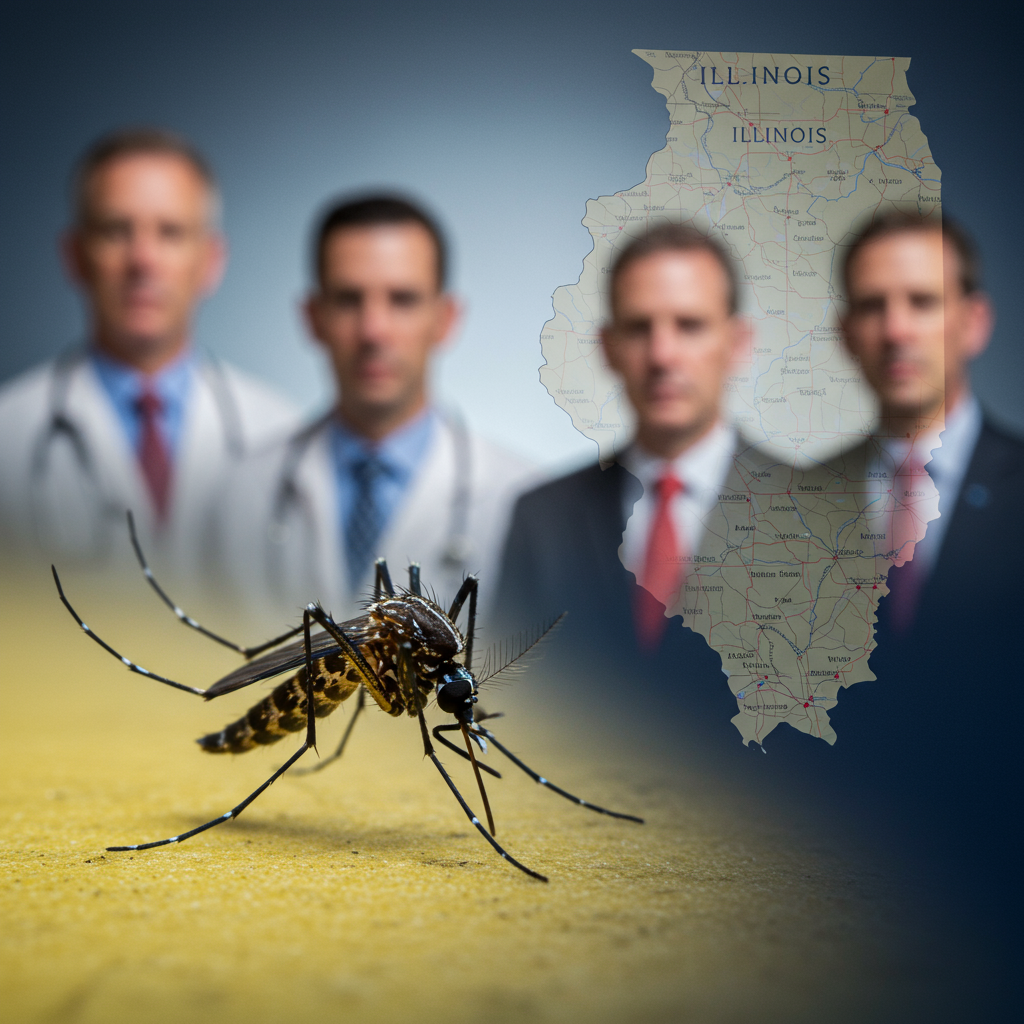For expectant and new mothers, navigating health decisions is paramount. A recent expert panel organized by the U.S. Food and Drug Administration (FDA) stirred alarm among doctors and patients. This panel questioned the safety of selective serotonin reuptake inhibitors (SSRIs) during pregnancy. However, leading medical organizations and mental health specialists have strongly pushed back. They argue the panel misrepresented evidence, potentially spreading harmful misinformation about these crucial medications.
The Controversial FDA Panel and Its Claims
On July 21, the FDA convened a panel to discuss SSRI use in pregnancy. FDA Commissioner Marty Makary opened the discussion, suggesting studies “implicated” SSRIs in various infant health issues. These included pulmonary hypertension and cardiac defects. The majority of panelists, including some psychiatrists, psychologists, and a social work professor, cited studies claiming serious risks like miscarriage and autism. For instance, British psychiatrist Dr. Joanna Moncrieff referenced a study linking SSRIs to increased suicidality in a small proportion of youth. Another panelist, psychologist Roger McFillin, controversially suggested that intense emotional experiences in women are “gifts,” not “symptoms of a disease.”
This discussion ignited swift criticism. Prominent groups like the Society for Maternal-Fetal Medicine (SMFM) and the American College of Obstetricians and Gynecologists (ACOG) issued strong condemnations. They asserted the panel’s claims were unsubstantiated and inaccurate. The core concern was that such misinformation could create unnecessary barriers to care. Nearly one in five pregnant women and new mothers in the U.S. experiences anxiety or depression. For 6-8% of pregnant women, SSRIs are a prescribed and vital treatment option.
Why Medical Experts Are Alarmed: Rebutting the Misinformation
Healthcare providers and medical societies expressed deep alarm over the panel’s approach. They argued the panel’s composition was biased. Nine of the ten members had publicly questioned SSRI safety or generally opposed antidepressant use. For example, Dr. David Healy, a psychiatrist on the panel, made unsubstantiated claims. He suggested a “10-fold greater risk of fetal alcohol syndrome” with SSRIs and a link between birth defects and autism, both lacking scientific basis. Another panelist, Dr. Josef Witt-Doerring, runs a clinic focused on discontinuing psychiatric medication. Dr. Roger McFillin, mentioned earlier, is also noted as a skeptic of germ theory.
Only one specialist in maternal mood disorders, Dr. Kay Roussos-Ross, an OBGYN and perinatal psychiatrist, was part of the panel. She strongly advocated for SSRIs as a safe and necessary option for serious mental health disorders in pregnancy. She emphasized that treating mental illness is essential, not a luxury.
Flawed Research: “Apples and Oranges” Comparisons
Experts pointed to critical flaws in the studies cited by the panel. Dr. Jennifer Payne, a reproductive psychiatrist, noted some research didn’t even involve pregnant or postpartum women. Many claims, like the link between SSRI use and cardiac defects, have been “debunked over and over,” Payne stated.
Dr. Christopher Zahn, ACOG’s chief of clinical practice, highlighted “poorly controlled” studies. These studies often compared pregnant patients on SSRIs to healthy pregnant patients. This creates an “apples and oranges” comparison. A proper control group would be pregnant patients with mental health conditions not taking SSRIs. Well-controlled studies, which use appropriate comparisons, do not find the broad range of risks suggested by the FDA panel.
Robust Evidence: What the Data Really Shows
The overwhelming scientific consensus, based on robust evidence, supports the safety of SSRI use in pregnancy. Dr. Nancy Byatt, a perinatal psychiatrist, explained that SSRI use during pregnancy is “extremely well studied.” Data from “hundreds and thousands of individuals” shows that antidepressants are largely safe.
These comprehensive studies indicate that SSRIs are generally “not associated with major birth defects.” They also do not significantly increase the risk of miscarriage or postpartum hemorrhage, as some panelists suggested. The only consistent finding in robust studies is that newborns of mothers taking SSRIs in their third trimester might experience mild, self-resolving withdrawal symptoms for a few days. This robust body of data reassures both patients and providers.
The Critical Risks of Untreated Perinatal Depression
A critical point largely overlooked by the FDA panel was the profound impact of untreated mental health conditions during and after pregnancy. Dr. Kay Roussos-Ross was the sole panelist to effectively articulate these dangers. She stressed that untreated depression and anxiety pose significant risks for both mother and child.
Maternal Health Outcomes
Women with untreated mental health conditions are less likely to attend prenatal care appointments. They are also more prone to substance use during pregnancy. Untreated conditions increase risks of pre-eclampsia and cesarean delivery. Alarmingly, mental illness is the leading cause of maternal deaths in the United States, including deaths by suicide. The Society for Maternal-Fetal Medicine explicitly stated that “untreated or undertreated depression during pregnancy carries health risks, such as suicide, preterm birth, preeclampsia, and low birth weight.”
Impact on Child Development
The negative effects of untreated maternal depression extend to the child’s development. Dr. Payne noted extensive literature on the impact of postpartum depression on a child’s IQ, language development, and behavioral problems. “It’s as clear as a bell that you want mom to be well, during pregnancy and postpartum,” she emphasized. Maternal stress, anxiety, or depression can themselves have numerous negative effects on fetal brain development.
Comprehensive Care: Beyond Medication
While SSRIs are a vital option, experts highlight that they are not the only tool available. A comprehensive approach to perinatal mental health care offers various treatment pathways.
Psychotherapy and Lifestyle
For mild depression or anxiety, psychotherapy, or talk therapy, is often the first line of treatment. Evidence-based psychotherapies are effective and widely used during pregnancy and postpartum. Psychosocial treatments, such as peer support, can also be highly beneficial in improving symptoms for pregnant women and new mothers. Lifestyle adjustments like exercise, yoga, and meditation are frequently recommended complementary practices.
Addressing Access Barriers
Accessing quality therapy can be challenging due to insurance limitations or long waitlists. For women facing these barriers, or those with moderate to severe symptoms, SSRIs remain a crucial and helpful option. The ultimate goal is to ensure mothers receive timely and effective care tailored to their individual needs. Expectant and new mothers should discuss all available options with their doctor. This allows them to carefully weigh the benefits of treatment against the well-documented risks of leaving mental health conditions unaddressed.
Navigating Your Options: A Balanced Perspective
The FDA panel’s discussion sparked concerns, partly due to its perceived political motivation. Robert F. Kennedy Jr., the Health and Human Services Secretary, has a history of criticizing these drugs. He heads a commission evaluating psychiatric medications. This context adds another layer to the controversy. A Department of Health and Human Services spokesperson, Andrew Nixon, defended the FDA process. He called claims of it being “one-sided or politically driven” insulting to independent scientists.
Despite the controversy, the clear message from leading medical experts is that the scientific evidence overwhelmingly supports the safety and critical importance of SSRI treatment for pregnant individuals who need mental health support. Informed decision-making, in consultation with trusted healthcare providers, remains paramount for maternal and infant well-being.
Frequently Asked Questions
Why did the FDA panel’s claims about SSRIs in pregnancy draw criticism from medical experts?
The FDA panel’s claims drew widespread criticism because experts believed they misrepresented scientific evidence and spread misinformation. Leading medical organizations like ACOG and SMFM asserted that the panel cited flawed or outdated studies, some of which didn’t even involve pregnant women. They highlighted that many claims, like those linking SSRIs to major birth defects, have been repeatedly debunked by robust, well-controlled studies. Experts also noted the panel’s biased composition and its failure to adequately address the serious risks of untreated perinatal depression.
What are the recommended treatment options for perinatal depression beyond SSRIs?
Beyond SSRIs, several effective treatment options are recommended for perinatal depression, especially for mild to moderate symptoms. Psychotherapy, or talk therapy, is often considered a first-line approach. Evidence-based psychotherapies are available and widely used during pregnancy and postpartum. Psychosocial treatments, such as peer support groups, can also provide significant relief. Additionally, lifestyle adjustments like regular exercise, yoga, and meditation are often recommended as complementary practices to support maternal mental well-being.
What are the risks of not treating depression during pregnancy?
Untreated depression during pregnancy carries significant and well-documented risks for both the mother and the baby. For the mother, these risks include a higher likelihood of skipping prenatal appointments, increased substance use during pregnancy, and elevated risks for complications like pre-eclampsia and cesarean delivery. Untreated mental illness is also a leading cause of maternal deaths in the U.S., including suicide. For the child, untreated maternal depression can lead to negative long-term effects on IQ, language development, and an increased risk of behavioral problems.




